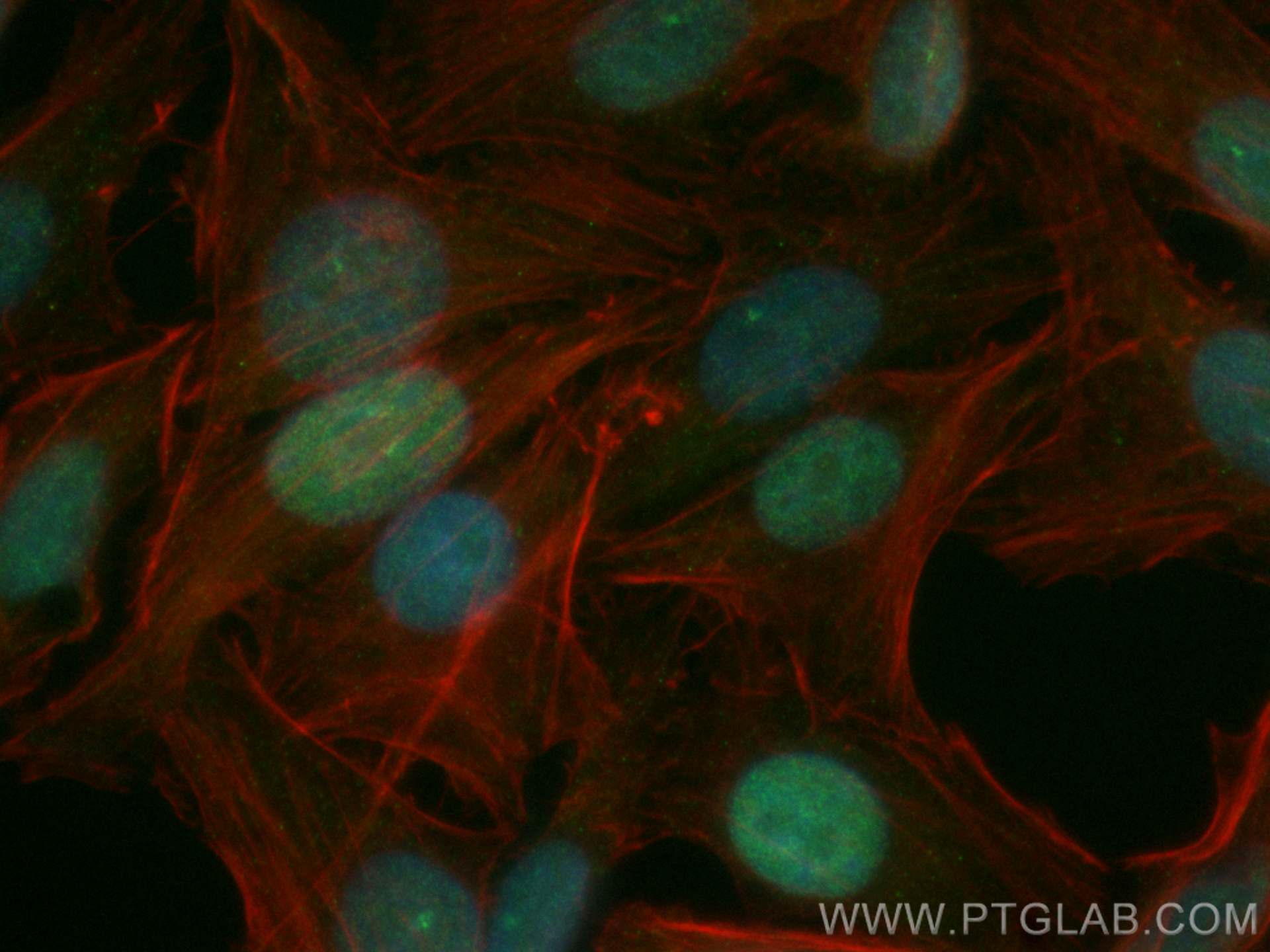Validation Data Gallery
Tested Applications
| Positive IF/ICC detected in | HepG2 cells |
Recommended dilution
| Application | Dilution |
|---|---|
| Immunofluorescence (IF)/ICC | IF/ICC : 1:300-1:1200 |
| It is recommended that this reagent should be titrated in each testing system to obtain optimal results. | |
| Sample-dependent, Check data in validation data gallery. | |
Product Information
CL488-66016 targets Transketolase in IF/ICC applications and shows reactivity with human samples.
| Tested Reactivity | human |
| Host / Isotype | Mouse / IgG2b |
| Class | Monoclonal |
| Type | Antibody |
| Immunogen | Transketolase fusion protein Ag16779 相同性解析による交差性が予測される生物種 |
| Full Name | transketolase |
| Calculated molecular weight | 68 kDa |
| Observed molecular weight | 68 kDa |
| GenBank accession number | BC009970 |
| Gene Symbol | Transketolase |
| Gene ID (NCBI) | 7086 |
| RRID | AB_2883228 |
| Conjugate | CoraLite® Plus 488 Fluorescent Dye |
| Excitation/Emission maxima wavelengths | 493 nm / 522 nm |
| Form | Liquid |
| Purification Method | Protein A purification |
| UNIPROT ID | P29401 |
| Storage Buffer | PBS with 50% glycerol, 0.05% Proclin300, 0.5% BSA , pH 7.3 |
| Storage Conditions | Store at -20°C. Avoid exposure to light. Stable for one year after shipment. Aliquoting is unnecessary for -20oC storage. |
Background Information
Transketolase is a key pentose phosphate shunt enzyme that plays an important role in the production of reducing equivalents and pentose sugars. Decreased activity of transketolase has been found in patients with Alzheimer's disease and thiamine deficiency. In addition, as an important biocatalyst in stereo-specific carbon-carbon bond synthesis, transketolase has been widely used in industry to produce aromatic products.
Protocols
| Product Specific Protocols | |
|---|---|
| IF protocol for CL Plus 488 Transketolase antibody CL488-66016 | Download protocol |
| Standard Protocols | |
|---|---|
| Click here to view our Standard Protocols |
